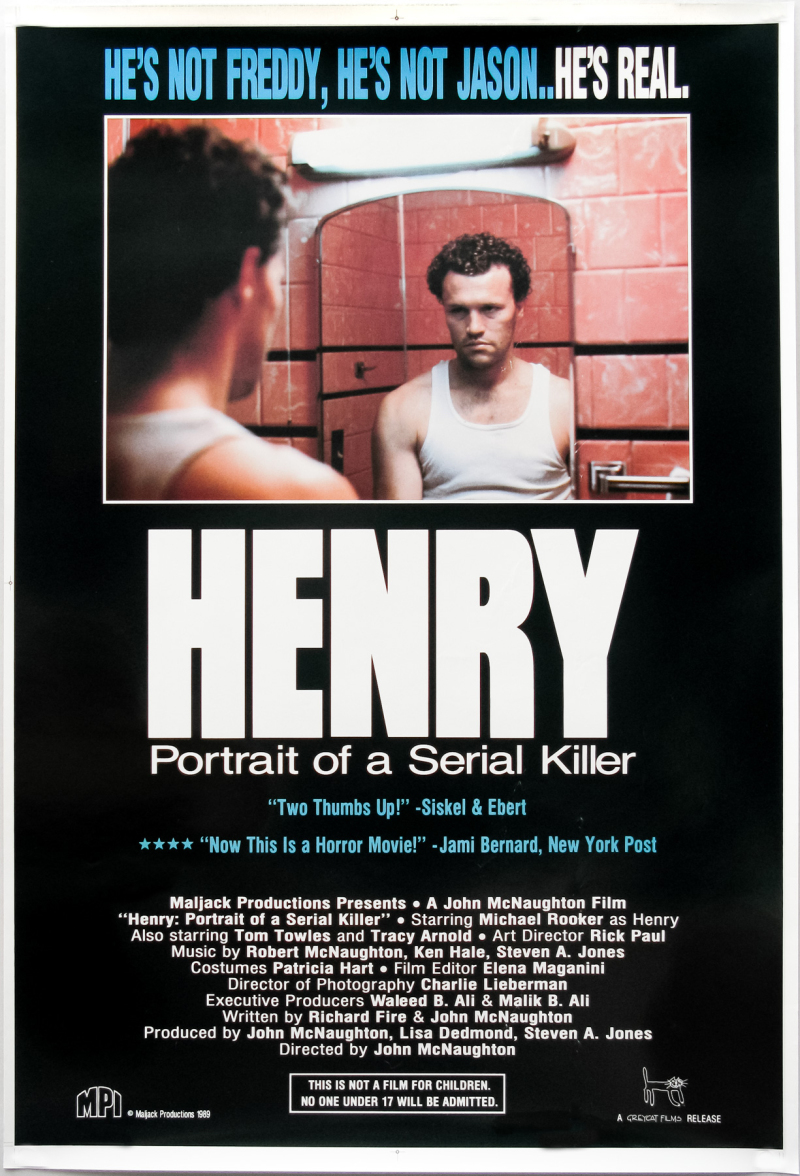Film and Video Censorship in New Zealand, 1976-1994
Duncan Anderson’s seminar looks at the history of film and video censorship in New Zealand from the 1970s to the 1990s, and the example of John McNaughton’s “Henry: Portrait of a Serial Killer” as a subject of censorship controversy.
Presented by Dr Duncan Anderson
Abstract:
 My doctoral research has involved historical analysis of cinema and video censorship in New Zealand from 1976 to 1994, a period bookended by the introduction of the concept of “injurious to the public good” as the guiding principle for film censorship in 1976, and the consolidation of censorship of film, video and other publications under one censorship authority in 1994. My emphasis has been on what Des Freedman describes as the “deeply political” nature of media policy development and implementation, as well as the role of many key actors, including politicians and civil servants, but also lobbyists and pressure groups, and “the importance of informal as well as formal modes of policy behaviour”. I have examined case studies of a number of films notable for censorship controversy, with a number of different voices competing for discursive legitimacy, which help to illustrate what Annette Kuhn describes as the idea of censorship as “a matter of relations…a process, not an object”, emphasising “the interactions between the various institutional practices involved”. These case studies also provide significant insight into the decision-making process of the film censors, demonstrating that this goes far beyond “objective” judgements about the manifest content of the films, and into more contentious and subjective areas such as the perceived tone of films (how they present certain content, rather than simply the content itself), views on media effects, the imagined audience, and the wider societal context. In this presentation I will look at the case of John McNaughton’s Henry: Portrait of a Serial Killer, as well as presenting a more general discussion about the significance of the rise of home video during the period which I have examined.
My doctoral research has involved historical analysis of cinema and video censorship in New Zealand from 1976 to 1994, a period bookended by the introduction of the concept of “injurious to the public good” as the guiding principle for film censorship in 1976, and the consolidation of censorship of film, video and other publications under one censorship authority in 1994. My emphasis has been on what Des Freedman describes as the “deeply political” nature of media policy development and implementation, as well as the role of many key actors, including politicians and civil servants, but also lobbyists and pressure groups, and “the importance of informal as well as formal modes of policy behaviour”. I have examined case studies of a number of films notable for censorship controversy, with a number of different voices competing for discursive legitimacy, which help to illustrate what Annette Kuhn describes as the idea of censorship as “a matter of relations…a process, not an object”, emphasising “the interactions between the various institutional practices involved”. These case studies also provide significant insight into the decision-making process of the film censors, demonstrating that this goes far beyond “objective” judgements about the manifest content of the films, and into more contentious and subjective areas such as the perceived tone of films (how they present certain content, rather than simply the content itself), views on media effects, the imagined audience, and the wider societal context. In this presentation I will look at the case of John McNaughton’s Henry: Portrait of a Serial Killer, as well as presenting a more general discussion about the significance of the rise of home video during the period which I have examined.
Biography:
Duncan Anderson completed a PhD in Film Studies at Victoria University of Wellington in 2017, having previously received a Masters Degree in History from the University of Waikato. He has worked at Victoria as a Teaching Fellow and Teaching Assistant in the Film Studies programme, and as well as the topic of censorship, has a particular interest in paracinema and cult film spectatorship.
